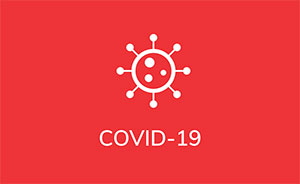Chronic lymphocytic leukemia (CLL) and small lymphocytic lymphoma (SLL) are cancers of the immune system, and patients with CLL or SLL are immunocompromised. As a result, they cannot make enough antibodies to fight off various infections, including COVID-19. Thus, antibodies from an external source can help prevent or treat COVID-19.
In this interview, our own Dr. Brian Koffman spoke with Dr. Michael Joyner, an anesthesiologist at the Mayo Clinic in Rochester, MN. They discussed the use of convalescent plasma to treat COVID-19.
Takeaways:
- In any new outbreak, the first source of antibodies will be from people who got the disease and recovered.
- At the beginning of the COVID-19 pandemic in 2020, research suggested that giving plasma with high levels of antibodies against COVID-19 to patients early on (as soon as they were admitted to the hospital) might be beneficial.
- Later on, in 2020 and 2021, there were studies where convalescent plasma was given later in the disease course (after 8-10 days or in the ICU), and it didn’t have much effect.
- However, when you looked specifically at patients who were immunocompromised or unable to make antibodies, they seemed to benefit from antibody replacement.
- Dr. Joyner and colleagues published a report in 2021 showing that when patients with blood cancers were hospitalized for COVID-19, treatment with convalescent plasma reduced mortality by 50%.
- However, convalescent plasma fell out of favor and was replaced by monoclonal antibodies, a standardized product that can be manufactured.
- The problem with monoclonal antibodies has been that eventually, new variants of COVID-19 arise, and the antibodies are no longer effective.
- Convalescent plasma is polyclonal, providing broader coverage than monoclonal antibodies, potentially providing coverage against multiple variants.
- More recent research shows that the most effective convalescent plasma comes from people vaccinated and had a breakthrough infection (“hybrid plasma”), which gives them broad-spectrum antibodies.
- “Hybrid plasma” has high antibody levels, much higher than the minimum recommended standards.
- Convalescent plasma is available to immunocompromised or immunosuppressed patients under an emergency use authorization from the FDA.
- It can be requested, and blood banks are pretty good at getting it, even if it has to be shipped from a different area of the country.
- It is best to get convalescent plasma as soon as possible after testing positive. Still, in some cases, convalescent plasma can be helpful much later on in the disease course for immunocompromised patients.
- For now, it can only be used for treatment, not to prevent COVID-19.
Conclusions:
While convalescent plasma fell out of favor for a while, there has been a resurgence in interest in using it to treat COVID-19 in immunocompromised patients. It seems that “hybrid plasma” from someone vaccinated and who had a breakthrough infection is particularly effective for treating COVID-19. If you are interested in learning more, please see our previous interview with Dr. Shmuel Shoham on this topic.
Please enjoy this brief interview with Dr. Joyner.
You can read the full report here: Association of Convalescent Plasma Therapy With Survival in Patients With Hematologic Cancers and COVID-19.
Take care of yourself first.
Ann Liu, PhD



